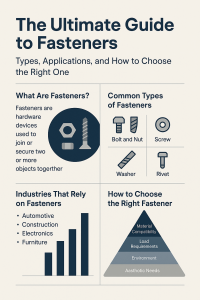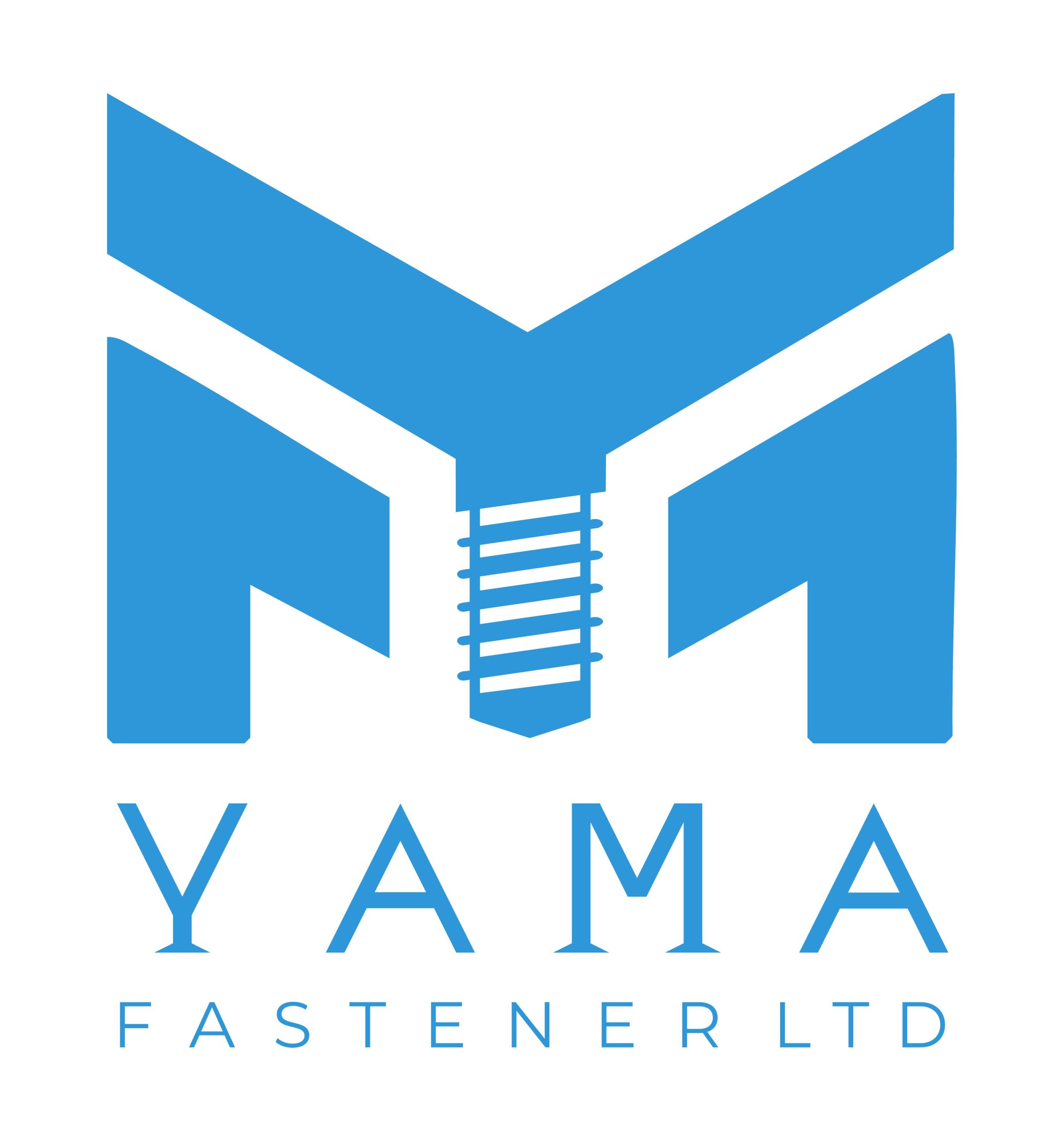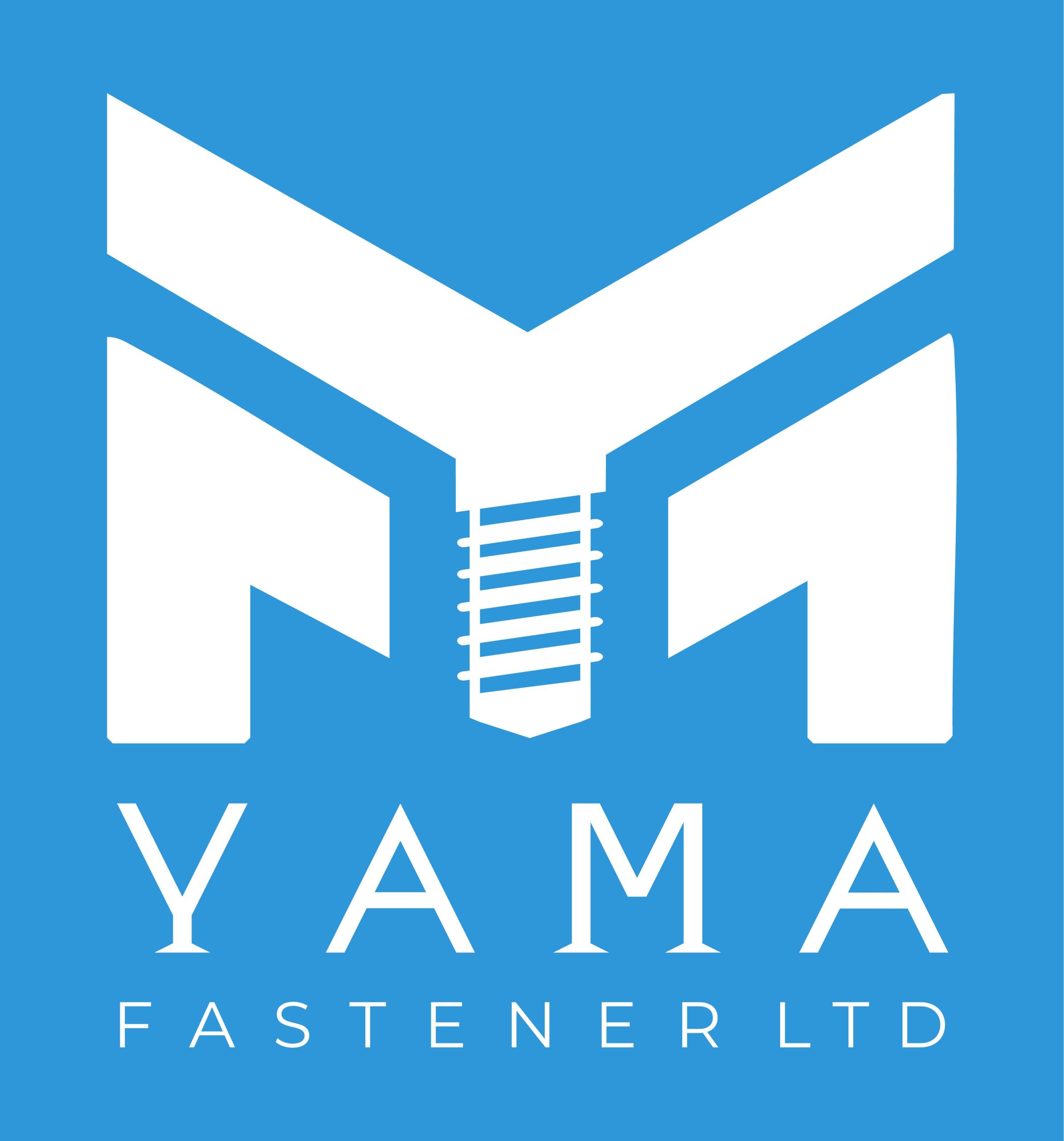
Fasteners are small components that play a big role in virtually every industry. From construction and automotive to electronics and furniture, it holds everything together—literally. In this guide, we’ll explore what they are, the different types available, and how to choose the right fastening solution for your project.
What Are Fasteners?
Fasteners are hardware devices used to join or secure two or more objects together. They are typically non-permanent (unlike welding or adhesives), which means they can be removed or replaced without damaging the parts they connect.
Common Types of Fasteners
There are hundreds of fastener types, but here are the most common ones:
1. Bolts and Nuts
Bolts are threaded fasteners used with nuts to hold materials together. Common bolt types include hex bolts, carriage bolts, and flange bolts.
2. Screws
Screws are versatile fasteners that can be used in wood, metal, or plastic. They come in many variations, such as self-tapping screws, machine screws, and drywall screws.
3. Washers
Washers are used with bolts and screws to distribute load and prevent surface damage. They also help in reducing vibration and loosening.
4. Rivets
Rivets are permanent fasteners commonly used in construction, shipbuilding, and aerospace industries. Once installed, they create a strong, vibration-resistant joint.
5. Anchors
Anchors are used to fasten objects to concrete or drywall. Expansion anchors and toggle bolts are popular options for heavy-duty applications.
6. Pins and Clips
Pins, cotter pins, and retaining clips are used in machinery to hold parts in position or allow rotation.
Industries That Rely on Fasteners
- Automotive: For assembling body panels, engine parts, and interiors.
- Construction: From steel frameworks to wooden beams, fasteners are everywhere.
- Electronics: Precision screws and clips are vital in circuit boards and casings.
- Furniture: Flat-pack furniture often relies on screws, bolts, and dowels for easy assembly.
How to Choose the Right Fastener
Selecting the right fastener depends on a few key factors:
-
Material Compatibility: Use stainless steel or coated fasteners for corrosion resistance in outdoor or marine environments.
-
Load Requirements: Choose one that can handle the stress and weight of the application.
-
Assembly Method: Determine whether you need permanent or removable fasteners.
-
Environment: High humidity, heat, or chemical exposure may require specialized fasteners.
-
Aesthetic Needs: For visible areas, fasteners with polished finishes or custom head designs may be ideal.
Why Quality Matter
Low-quality fasteners can lead to joint failure, safety risks, and costly downtime. At YAMA Fastener Ltd, we provide high-quality, precision-engineered fasteners that meet international standards and are trusted by clients worldwide. Whether you need off-the-shelf solutions or custom-made components, we’re here to support your project from start to finish.
Custom Fastener for Unique Projects
Some projects need more than just standard hardware. We offer custom fastener design and manufacturing tailored to your specific requirements. From small prototype batches to large-scale production, we ensure durability, performance, and consistency in every product.
Looking for a Reliable Fastener Supplier?
If you’re searching for a fastener supplier that delivers both quality and service, look no further. Contact us today to request a quote or learn more about our product range.
Boost your productivity with reliable fastening solutions.
📞 Contact us

